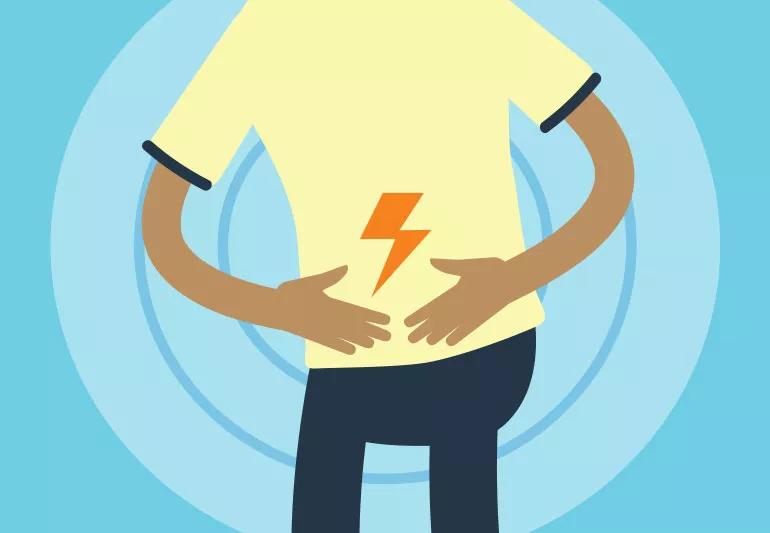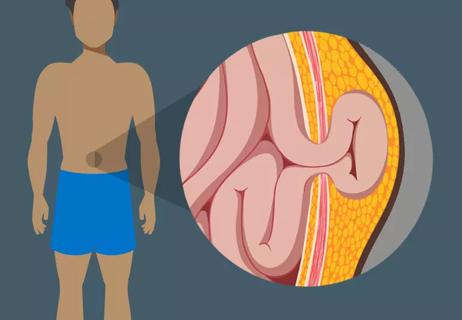For some, additional surgery may bring relief

When you have surgery to repair a painful inguinal hernia (where soft tissue bulges through a weak part of your abdominal wall) you likely expect the surgery to relieve your pain. It does for most people, but for others groin pain may last for months — or even years — after surgery.
Advertisement
Cleveland Clinic is a non-profit academic medical center. Advertising on our site helps support our mission. We do not endorse non-Cleveland Clinic products or services. Policy
Inguinal hernia repair is common. It accounts for about 800,000 surgeries performed in the U.S. each year. And most patients feel better by a few weeks after surgery.
However, some patients end up with chronic groin pain. It can last for months and is sometimes quite debilitating. It may even interfere with sitting or walking, says general surgeon David Krpata, MD.
We talked with Dr. Krpata to better understand the possible cause of post-surgery chronic pain — pain that lasts for three months and the best options for relief.
You may have had open surgery to repair your hernia, in which an incision is made in your abdomen. Or the surgeon may have made the repair laparoscopically — with a tiny, telescope-like device inserted through small incisions.
Either way, it’s likely your surgeon used synthetic mesh to reinforce your abdominal wall, Dr. Krpata says.
Most often, he says, one of two issues causes pain following hernia repair surgery:
Advertisement
If you had surgery to repair a hernia and are still having pain after three months, it’s time to talk with your surgeon, Dr. Krpata says.
Your surgeon should consider all possible treatment options to determine which is best for relieving your pain. Options may include:
“While injections, nerve ablation and medication can help ease pain, they don’t do much to help the underlying issue,” Dr. Krpata says.
Don’t assume you just have to live with the pain, Dr. Krpata says.
“We see patients with chronic pain after hernia repair surgery and often the option to have additional surgery isn’t even presented to them,” he says. “While additional surgery isn’t the right choice for everyone, for some, mesh removal or neurectomy procedures can provide significant or complete relief from chronic pain.”
Ultimately, a multidisciplinary team approach, in collaboration with pain management, is required to determine which treatment options patients may respond to, Dr. Krpata says.
If you have talked with your surgeon about your options for relief from chronic pain, but aren’t getting relief, it may be time to think about choosing a specialist, Dr. Krpata says.
Advertisement
Learn more about our editorial process.
Advertisement

Hernias don’t go away on their own, but they don’t always require surgery either

Most recommended precautions center around minimizing bruising or swelling

Even one drink can have an impact on your cognitive function leading to slurred speech, blurred vision and impaired memory

Understand who may (and may not) benefit

Lorem ipsum dolor sit amet. Et odio Quis vel ipsam omnis eum alias deleniti et placeat impedit non voluptas galisum hic autem enim et cupiditate aliquid. Est beatae quidem non facilis autem ut commodi nisi aut tempore rerum et dolores voluptatem cum enim optio id sapiente quasi. Ad laboriosam officiis 33 cupiditate sequi ea voluptatum consectetur qui necessitatibus voluptate et quasi doloremque et facere explicabo quo explicabo officia

Seeking help through therapy can be an important step in improving your quality of life when you have UC

Type 2 diabetes isn’t inevitable with these dietary changes

Applying a hot or cold compress can help with pain